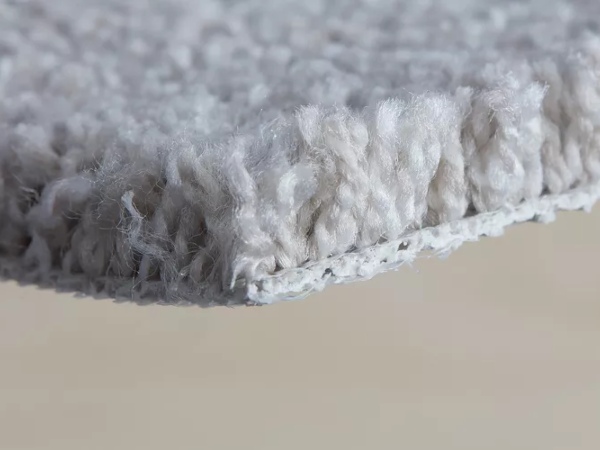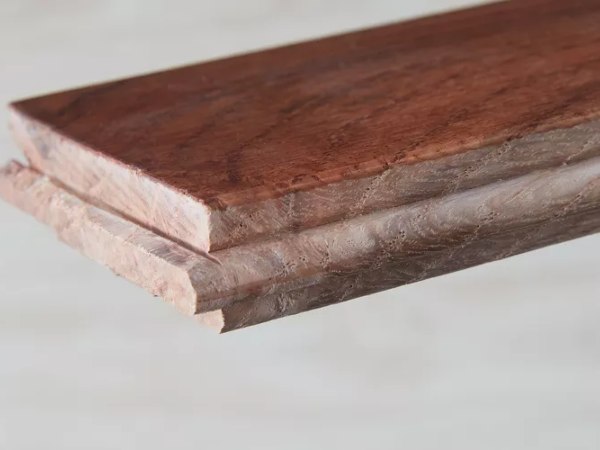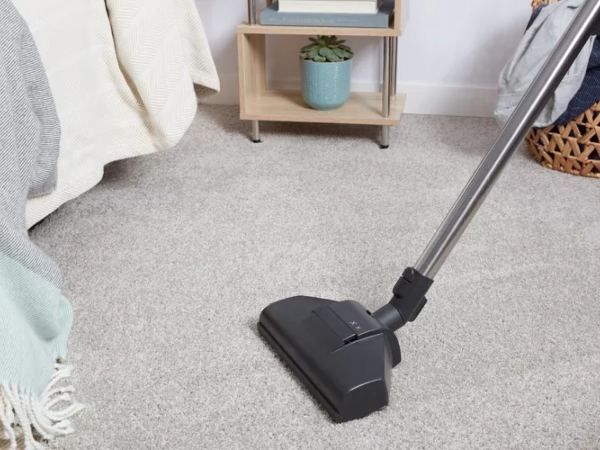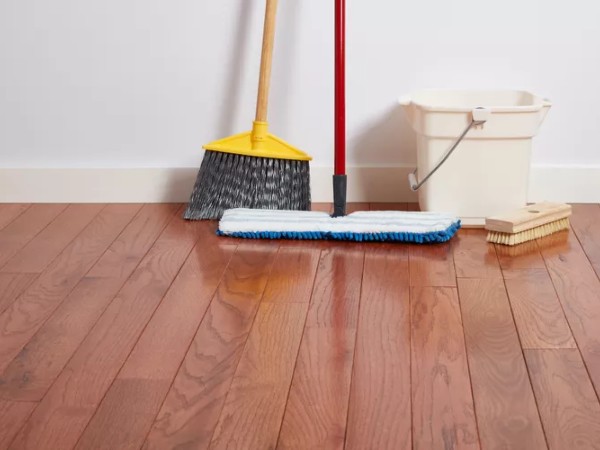Carpet and hardwood: These are two of the most famous and common of all flooring items. But, these two are very different from one another. While one is a completely synthetic, soft, quiet, inexpensive material with a relatively short lifespan, the other is a natural, hard, and a bit costly flooring material that generally lasts longer than your house. But, both have roles to play and you will find people using both materials in different places at their homes. Both materials have important characteristics that make them useful in certain environments to match particular requirements. Before you choose one, it is essential to understand the nature of the materials so that you know how to use them in different locations in your home.
Carpet vs. Hardwood Flooring
Carpet vs Hardwood flooring. Which one should you get?
Most modern carpet is made by threading closely spaced loops of synthetic fibers through large sheets of strong backing materials. Carpets also come in some natural fiber materials like cotton and wool but most people use synthetic materials, such as nylon to polyester due to low cost and longevity. Carpeting factories produce them in huge rolls and customers purchase them by the foot, in whatever quantities they need.
Modern hardwood flooring normally has two forms. Solid hardwood flooring, as you can guess from its name, is made up of solid wood that is milled from rough lumber that is made from felled hardwood trees. These boards have a smooth sanded face on the top surface but have a bit rough bottom. Their edges have tongue-and-grooves allowing the boards to interlock as they are installed.
Another type of hardwood flooring is called engineered hardwood flooring. Makers create these boards by adhering a relatively thin surface of real hardwood to a thicker (and cheaper) core layer of high-quality plywood. This construction makes the flooring less costly and gives the board hardwood stability against expanding and shrinking due to fluctuating temperatures and humidity levels. Most of these floorings have a similar tongue-and-groove construction. Their installation method is also the same as solid hardwood flooring.
Difference between hardwood and carpet
Hardwood Carpet
Cost Average $5 per square foot Averages $3 per square foot
Durability May last 100 years or more Up to 10 years
Value Adds real estate value No real estate value
Cleaning Easy to clean with sweeping Easily vacuumed
Comfort Hard underfoot, loud and cold Soft and warm, dampens sound
Appropriate Not for bathrooms, basements Bedrooms, recreation spaces, dens
Health Great for allergy sufferers May trap dust and pollen
Also, Read Items That You Should and Should Not Keep in Your Bedroom!
Appearance: Carpet vs. hardwood flooring
Carpet
Most of the modern carpets are highly resistant to water damage due to the synthetic fibers present in them. However, it is essential to prevent water from entering into the back layer or the wood subfloor beneath as mold easily grows below the carpet. Due to this reason, we do not recommend carpets for wet areas like bathrooms or spaces where spills are likely to happen, like the kitchen. Carpet is also easily damaged by heat like from burning cigarettes or hot utensils. If the house ever catches fire, some of the carpet materials can emit toxic gases.

Hardwood
We do not recommend wood flooring in any area where water and moisture are constantly present, although it’s sometimes fine in the kitchen, only if you can immediately wipe the spills immediately. Most wood flooring is not recommended for below-grade installation against a concrete slab, since ground moisture frequently goes inside through the slab. Having said that, engineered wood flooring may be strong enough to be used in these cases. Remember that hardwood can be damaged by strong heat. If the scorch marks are mild, you can sometimes sand it out and refinish.

Water and Heat Resistance: Tie
We neither recommend carpet nor hardwood flooring for damp or constantly humid conditions, like bathrooms or basement slabs. While carpet fibers can resist water damage, the backing fabric can be home to mold and mildew. Hardwood can be easily damaged by water. Both materials are immune to heat and cigarette burns.
Care and Cleaning
Carpet
Daily cleaning is not that hard for carpet since it involves simple but often vacuuming. However, some people feel that it is impossible to fully clean the carpet since stains soak in and settle permanently and also because dust and bacteria get easily trapped in the fibers. For people with allergies, carpets can be the poorest flooring material.

Hardwood
Unlike carpet, hardwood flooring is very easy to clean. Sweeping or vacuuming removes loose dirt and occasional damp-mopping with a cloth will remove deeper dirt and stains.

Durability and Maintenance
Carpet
Routine maintenance of the carpet should include frequent vacuuming and trying to remove stains as soon as you spot them. If you want to extend the life of your carpet, we recommend occasional deep cleaning from a professional cleaner. Despite that, a carpet will rarely last more than a decade.
Hardwood
If taken proper care of, hardwood flooring can last for many decades and some of the high-quality materials can last for generations. Also, solid hardwood can be completely sanded down and refinished when wear is severe. If done professionally, most floors can be sanded three or four times over their lifespans. Between this, the surface varnish should be renewed every few years involving lightly abrading the finish with a sanding screen, then applying a good-quality polyurethane varnish.
Cost
Carpet
Most carpets are less expensive than most hardwood materials. While carpeting needs to be replaced every few years, perfectly acceptable carpeting may be available for less than $1 per square foot. Costs can also go as high as $20 per square foot for the highest quality wool carpets. Most carpets purchased and installed at home is purchased at about $3 per square foot, on average.
Hardwood
The price of solid hardwood costs starts at around $4 per square foot and goes up from there. On average, a hardwood floor costs about $5 per square foot, purchase and installment included.
Lifespan
Carpet
You have to normally replace the carpet in 10 years or less.
Hardwood
I won’t be wrong when I say that hardwood flooring can last up to 100 years and there are many examples where a floor lasts through many generations of homeowners.
Size
Carpet
We normally get carpeting in rolls 12 or 15 feet long, cut to whatever length the customer wants.
Hardwood
Hardwood flooring is typically sold in 48-inch-long boards, 1 1/2 to 4 inches wide. The thickness of solid hardwood flooring boards is usually 3/4 inches.
Resale Value
Carpet
Since carpeting is inexpensive and short-lived flooring material, it usually doesn’t add much real estate value. But, modern carpeting is seeing improvement over shabby old flooring.
Hardwood
Hardwood is a high-end and luxurious, both because it is a natural material and because it lasts for generations. Depending on the type of wood chosen and how it is finished, hardwood can create unmistakable prestige as a flooring material.
The Verdict
The above comparisons clearly show that hardwood flooring is better than carpet, on many levels. Whether it be longevity, elegance, or a better real estate value, hardwood is the better option. But carpet seems to be a better option where your comfort is your primary concern or where there is a budget issue. Just know that you have to go through the hassle of changing it every ten years or so.
FAQs
Q: Is carpet better than hardwood for allergies?
A: Easy-to-clean tile and stone are typically the go-to choices, because neither trap dust mites, pollen, dander, and other airborne particles that aggravate allergies. Still, not everyone likes the feel, or they worry about falling on a hard surface. Hardwood is generally somewhat better than carpet in terms of allergies.
Q: Are carpets dirtier than hardwood?
A: Many people make the statement that carpet is a sink and thus traps and holds potentially dangerous contaminants. That’s a true statement, but it’s also a good-quality carpet. With carpet, the fibers act as a filter and hold onto contaminants until you vacuum. That’s not the case with hard floors.
